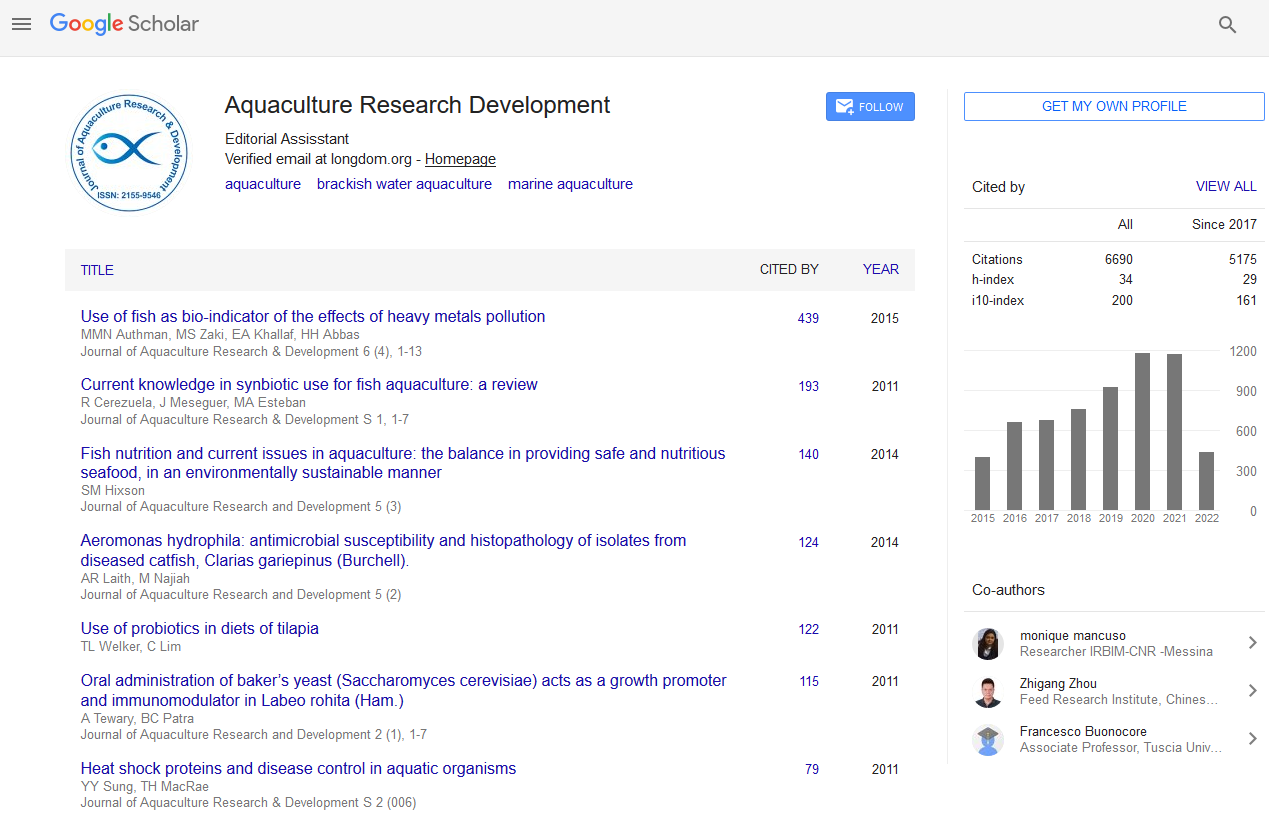PMC/PubMed Indexed Articles
Indexed In
- Online Access to Research in the Environment (OARE)
- Open J Gate
- Genamics JournalSeek
- JournalTOCs
- Scimago
- Ulrich's Periodicals Directory
- Access to Global Online Research in Agriculture (AGORA)
- Electronic Journals Library
- Centre for Agriculture and Biosciences International (CABI)
- RefSeek
- Directory of Research Journal Indexing (DRJI)
- Hamdard University
- EBSCO A-Z
- OCLC- WorldCat
- Scholarsteer
- SWB online catalog
- Virtual Library of Biology (vifabio)
- Publons
- MIAR
- University Grants Commission
- Euro Pub
- Google Scholar
Useful Links
Share This Page
Journal Flyer

Open Access Journals
- Agri and Aquaculture
- Biochemistry
- Bioinformatics & Systems Biology
- Business & Management
- Chemistry
- Clinical Sciences
- Engineering
- Food & Nutrition
- General Science
- Genetics & Molecular Biology
- Immunology & Microbiology
- Medical Sciences
- Neuroscience & Psychology
- Nursing & Health Care
- Pharmaceutical Sciences
Personalities and welfare of fish in aquaculture
International Conference on Aquaculture & Fisheries
July 20-22, 2015 Brisbane, Australia
Flavia Oliveira Mesquita
Posters-Accepted Abstracts: J Aquac Res Development
Abstract:
Fish are cultured for a variety of reasons including for food, for the ornamental trade, for restocking and for conservation. Housing animals at high densities and with frequent husbandry interventions are common and necessary practices in aquaculture but it is impossible to avoid many of the procedures known to induce stress in fish. It is important to make husbandry practices less stressful. The impact of aversive stimuli or stressors is determined by the ability of the organism to cope with the situation. Whenever environmental stressors are too demanding and the individual cannot cope, its health is in danger. It is important to understand the mechanisms and factors underlying the individual?s capacity to cope with environmental challenges. As is true for other agriculture sectors, aquaculture practices are now being examined to assess their impact on the environment and on animal welfare. There are a number of strategies that could potentially be used to reduce the adverse effects of fish husbandry practices including choosing to farm fish that adapt well to intensive rearing conditions, developing husbandry systems that minimise adverse effecton welfare and developing sensitive indicators that can be used on working farms to identify quickly and easily whether fish are in a state of good welfare. Behavioural responses are the first defence that an animal has against environmental changes, predators or social conflicts. Animals show different behavioural strategies when facing threatening situations and the type of behavioural and physiological response to stress is an individual characteristic called coping or personality.


